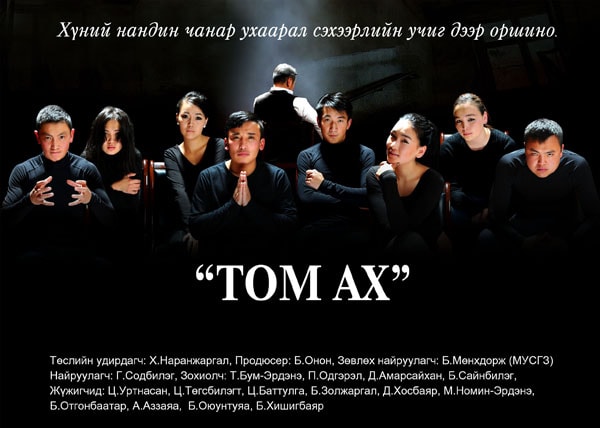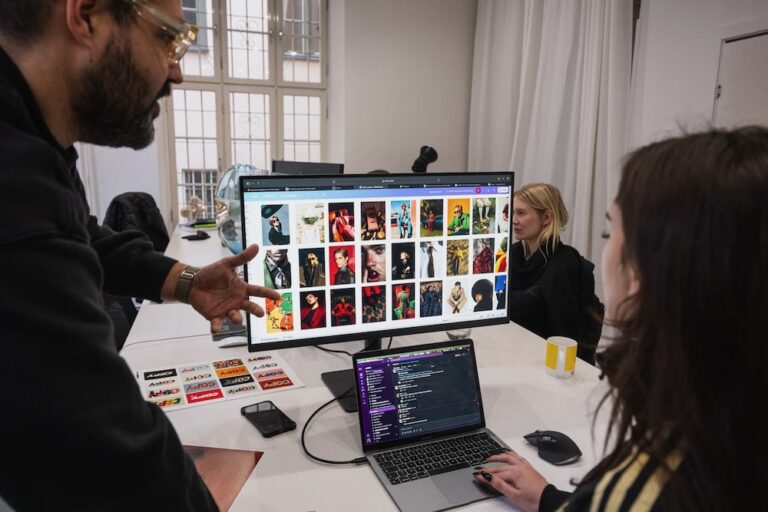When traditional government lobbying doesn't work, campaigners can instead develop alternative, creative projects to build community influence. Check out how IFEX members in Israel and Mongolia have brought entertainment - and impact - into their campaigns!
An 11-year-old Arab-Palestinian living in Israel takes the microphone. She describes her experience at school as alienating and even violent, making her wish that public education was optional.
A young woman from the Arab-Palestinian community in Israel, also present at this gathering of street performers and observers, offers her thoughts on the nagging fear and anxiety she experiences each time she leaves her house. Her mother, a member of the audience, hears her daughter’s concerns for the first time.
Their stories are not unusual, but they often go unheard. The I’lam Media Center for Arab Palestinians in Israel (I’lam) saw that there was a need for safe, public spaces in Israel for members of the local Arab-Palestinian community to congregate and voice their feelings or opinions without fear of intimidation or retribution.
Well aware of the safety risks and aggressive connotations of staging a protest on Israel’s already tense political terrain, I’lam campaigners thought to try a different kind of gathering: they would entertain and engage local Arab-Palestinians on the importance of free expression through peaceful forums for open discussion.
Over five months with the support of an IFEX grant in 2012, I’lam offered spaces for pop-up street performances in three separate communities in Israel. These events provided Arab-Palestinians, particularly young members of the community, with an innovative, non-threatening way to give voice to their struggles. By strengthening individual voices and dialogue, the community as a whole was strengthened.
Just a year earlier, another IFEX member was busy running an innovative campaign that also incorporated performance. But instead of offering venues for individuals to improvise and express themselves, they staged theatrical readings on a complex legal issue that had the potential to negatively affect freedom of expression.
Globe International Center in Mongolia was concerned by the potential for the country’s criminal libel law, developed in 2002 and often maneuvered as a means of intimidation and media censorship, to cut into the fundamental rights of Mongolian citizens and restrict information shared with the public about an upcoming election in 2012.
Alarmed by the state’s apparent unwillingness to respond to traditional lobbying tactics, they developed a creative, alternative approach to campaigning that shifted the focus from government lobbying to empowering the local community.
Since libel legislation is usually incomprehensible to many of the citizens it affects, the laws in Mongolia were not generating much community outrage or discussion. Knowing that a better-informed public could exert greater pressure on the government to repeal the legislation, the campaigners at Globe caught the local community’s attention by staging a series of original script readings in addition to online campaigning and a roundtable.
The theatrical component of the defamation campaign was particularly strategic. Local, professional playwrights were asked to write fictional scripts based on true stories of unjustified criminal libel suits, which were later showcased through staged readings at local venues.
According to Naraa Khashkhuu, head of Globe International Center, the performances helped to give the public a new enthusiasm for free expression advocacy.
“Mongolians are very interested in theatrical performances… [so] it was very successful – even more than we expected… When people see theatrical performances, they live the lives of the heroes in the play. That is why [performative campaigning] is closer to the heart of the people than a document written by an official.”
Audience members at the readings, including a reporter-turned-parliamentarian and a journalism student, were moved by the performances, reports Naraa:
“[The parliamentarian] told me we made people cry with the play on criminal libel, and that the heroine of the play reminded her of her former profession… The journalism student said that now, after seeing the play, she knows what she has to work for to tell the truth to the public.”
The newly engaged audiences often become the most effective promoters, helping expand the audiences for subsequent events.
The result? The staged readings attracted buzz, caught the attention of the media as well as government officials, and ultimately the government made a public pledge .
For the campaigns team at I’lam, connections among local community networks helped spread enthusiasm for their street theatre initiative. According to former I’lam Programme Officer Nasser Rego, members of a local women’s group who attended one of the performances in Nazareth shared their excitement for the project with a partner group in Umm al-Fahm, which resulted in a greater turnout at the performance in that community.
The strength in both I’lam and Globe’s advocacy projects was a concerted focus on developing a campaign that would speak to what their communities needed – and ultimately raise their voice on issues of free expression.
Inspired by the enthusiasm they encountered for this kind of campaign, I’lam is developing a new initiative to raise the profile of another specific group: Arab-Palestinian women and youth activists in Israel. This time, participants will be trained in how to use a specific vehicle for expression – video – to tell stories of protests.
Their hope is that this upcoming campaign, planned to launch in the coming months, will result in even greater public engagement and further strengthen this community’s voice.
*********
Have you considered whether your strategic campaign plan is fresh, engaging and directed at the right people? Do you see a benefit in directly engaging public audiences affected by a certain free expression violation? Then you need IFEX’s Campaign Toolkit to explore the multifaceted guide on ways to make your advocacy strategic and inspiring, and to select the most appropriate, effective audience for every initiative you launch.
“Mongolians are very interested in theatrical performances… [so] it was very successful – even more than we expected… When people see theatrical performances, they live the lives of the heroes in the play. That is why [performative campaigning] is closer to the heart of the people than a document written by an official.” -Naraa Khashkhuu, Globe International Center

One of the posters for the Globe Center’s second staged reading – “Never Late” – based on a case of defamation and government corruptionGlobe International Center
“[The parliamentarian] told me we made people cry with the play on criminal libel, and that the heroine of the play reminded her of her former profession… The journalism student said that now, after seeing the play, she knows what she has to work for to tell the truth to the public.”

Palestinian community members of all ages took part in I’lam Media Center’s pop-up theatre campaign that ran in cities throughout Israel in 2012I’lam Media Center



